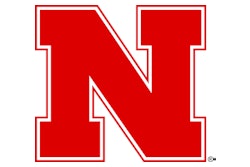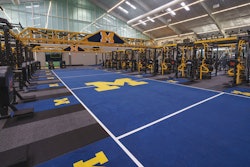Copyright 2017 Worcester Telegram & Gazette, Inc.
All Rights Reserved
Telegram & Gazette (Massachusetts)
Baseball's Hall of Fame in Cooperstown, New York, is the sport's pantheon to its greatest players (and executives, managers, umpires and writers), but not only that: It is a kind of national shrine. If that seems overblown, or quaint, then consider the morality play doubling as the current debate over the suitability, or not, of electing two prodigiously talented alleged cheaters to the hall: Roger Clemens and Barry Bonds.
Both were diamond deities in Major League Baseball's steroid era - mainly, the 1990s - and there is strong evidence both used performance-enhancing drugs, known as PEDs, to juice their bodies and prolong their careers.
Until now, it has been widely, and rightly, assumed that Bonds, baseball's all-time home run titleholder, and Clemens, the dominant pitcher of his generation, had disqualified themselves from induction into the Hall of Fame through their suspected PED use. Now, suddenly, the 400-odd baseball writers whose votes determine who gets admitted have had a rethink, and the doping duo's prospects have improved.
They shouldn't.
The arguments in favor of enshrining the two are an exercise in twisted judgment and logic-bending rationalization whose underlying assumption is that actions need have no consequences if undertaken by athletes of transcendent talent.
The tortured justifications for elevating, and excusing, Bonds and Clemens come in various flavors.
One that has gained particular currency is that it is unfair to bar entrance to the hall to the two superstars given that Bud Selig, baseball's commissioner during the steroid era, was recently enshrined. Putting aside the wisdom of Selig's induction - some believe he turned a blind eye to doping; others say he did what he could to deal with it, but too slowly - the argument fails the laugh test.
If one Hall of Famer's faults absolve those of prospective inductees, then value judgments themselves are suspended.
Perhaps more to the point, the eligibility of Bonds and Clemens, unlike that of Selig, rests exclusively on their prowess on the field. Yet that prowess, while not to be dismissed, was almost certainly pharmacologically enhanced. PEDs would have imparted an advantage other players did not enjoy.
In the baseball world, some would go soft on the two superstars because at the time of their suspected doping, baseball had not yet adopted written rules or penalties against it.
But plenty of people in the game did not dope and knew full well it was wrong.
Those who doped also knew it was wrong and, consequently, sought by various means to hide it.
But hey, say proponents of inducting the two, they were really, really great - how can baseball possibly exclude them?
The answer is that they were indeed great; they are also ordinary mortals. And for ordinary mortals - Russian pole-vaulters, philandering spouses, politicians on the take, even Lance Armstrong - cheating equals disgrace, dishonor and ignominy.
Rules should not be suspended for a batter who clouted enough home runs, or a pitcher whose fastball was unhittable.
To do that would be to make a mockery of the rules, and of baseball and of Cooperstown.
- The Washington Post
Read More of Today's AB Headlines
Subscribe to Our Daily E-Newsletter
Terms and Conditions Privacy Policy































